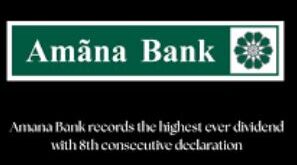– A post war view of the Sri Lankan economy and the role of Islamic Finance in it
Muath Mubarak presently works for First Global Group, a Sri Lanka-based conglomerate of companies involved in the Islamic finance industry. He is a Final level student of CIMA-UK and Associate Fellow Member of Institute of Islamic Banking and Insurance (IIBI) – UK, Successfully completed the Post Graduate Diploma in Islamic Banking and Insurance. He is preparing to sit for the Islamic Finance Qualification (IFQ) examination, managed by London Securities and Investment Institute. He also lectures in Islamic Finance at First Global Knowledge Centre and is a freelance writer on various topics relating to Islamic banking and finance.
All Sri Lankans were overjoyed with the termination of the Eelam War that had continuously plagued the Sri Lankan economy for more than three decades. It is high time we started thinking about the development of the nation with a long term perspective without any discrimination. Sri Lanka has to grow like other developed countries within a short span of time by exploiting the untapped opportunities.
The Post war period requires development in all areas across the country and one of the main areas that demand our attention is the economy. This requires deeper understanding of the issues and long term visionary thinking in order to. In this regard, the finance sector or rather banking sector plays a vital role.
Unfortunately the banking and finance sector has been facing a severe financial crisis since 2007 but according to officials, the Sri Lankan economy is not in trouble. Even if we were to ask a layman what this financial crisis is all about, we will get the simple answer “There is no liquidity to meet the requirements of the bank’s day today activities” or else “the banks and financial institutions have only paper money but nothing to back it”, and so on. Yes, this is the fact of this credit crunch which started from the sub prime crisis in United States. A handful of people structured some innovative derivative products (According to the Bank for International Settlements (BIS), outstanding derivatives rose to US$683.7 trillion as of June 2008, more than 12 times the world’s combined gross domestic products of $54.3 trillion in 2007) which led them to make money on money eventually leading the whole economy on the downslide.
One of the main reasons for this financial turmoil is that the world’s financial sector didn’t use the money as a medium of exchange only. Further the transactions should create real value to the economy instead of building it up on the basis of paper money on money (interest on interest). It was during this period that the experts and economists came to consider an alternative financial system for western markets.
”When economies begin pulling out of the downturn, we expect Islamic finance to resume its rapid growth,” (Damak – Standard & Poor’s)
One of the fastest growing industries in the world today is the Islamic Finance industry. Analysts and rating agencies are confirming that it is growing at a rate of 20-25 percent every year and that it will hold assets totalling US$ 4 trillion by 2012. Moreover it has tapped less than 20% of the potential market according to the experts in the industry. In addition to this another strong example is that 7 out of top 10 conventional banks with an international presence have commenced Islamic banking.
Please Click here to read the complete Article in PDF format.
Post Disclaimer | Support Us
Support Us
The sailanmuslim.com web site entirely supported by individual donors and well wishers. If you regularly visit this site and wish to show your appreciation, or if you wish to see further development of sailanmuslim.com, please donate us
IMPORTANT : All content hosted on sailanmuslim.com is solely for non-commercial purposes and with the permission of original copyright holders. Any other use of the hosted content, such as for financial gain, requires express approval from the copyright owners.
 Sri lanka Muslims Web Portal Sri Lanka Muslims News Center
Sri lanka Muslims Web Portal Sri Lanka Muslims News Center
 Donate
Donate


